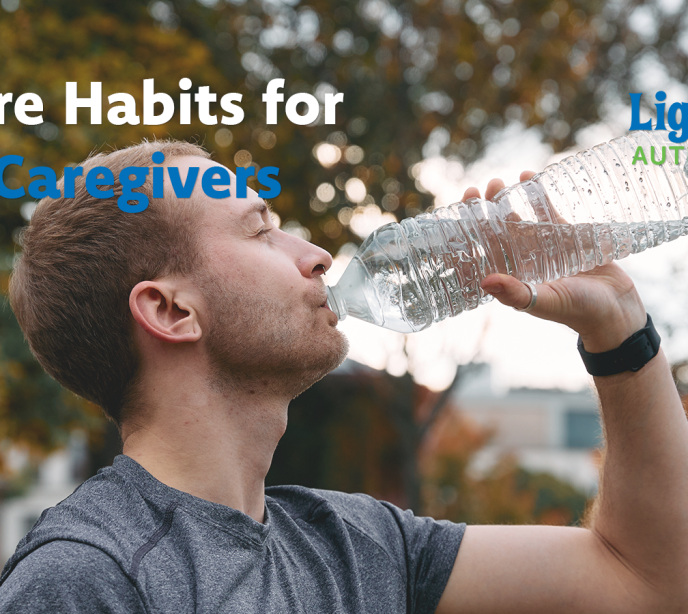Autism and Raw Food Diet
Is a Raw Food Diet the right choice for your autistic child? While they are extremely rich in nutrients and don’t have the additives found in processed foods, it takes careful consideration to introduce new eating patterns into your child’s routine. This blog explores the potential benefits and risks of a Raw Food Diet for autistic children, as well as practical strategies for gradually incorporating nutrient-rich raw options into your child’s daily meals.
Autism and Raw Food Diet
Parenting an autistic child can be a whirlwind, filled with unique moments of discovery and joy but also periods of stress and uncertainty. One of the most common challenges parents face is navigating the line between autism and nutrition. Sensory sensitivities are just one of the reasons that autistic children tend to have such specific preferences around food. But, as a parent or caregiver, you still need to make sure that your autistic child eats a balanced meal with all of the nutrients they need to grow, develop, and live healthy lives.
This complex spectrum disorder affects about one in 36 American children, and while boys are reportedly four times more likely to be diagnosed with autism than girls, each child’s journey is distinctly their own. Many autistic children go through nutritional challenges due to food aversions or sensitivities. These preferences can range from texture and temperature to color and smell. While the severity of these food sensitivities will differ from child to child, every parent needs to find a way to make sure that their child is receiving a balanced diet despite their aversions.

Common nutrient insufficiencies in autistic children include folic acid, fiber, calcium, iron, zinc, and essential vitamins A, C, D, E, B6, B12, and K. And, while there’s no single dietary solution, growing evidence suggests that focusing on nutrient-rich foods can help support healthy brain function and development in autistic children.
Food and Autism: Can a Raw Food Diet Be Beneficial for Autistic Children?
The Raw Food Diet, which has roots dating back to the late 1800s, is based on the premise that consuming food in its most natural state — without cooking or processing — is the best way to maximize its essential nutrients. Basically, the idea behind the Raw Food Diet is that the longer food is cooked, the more nutrients it loses. So, raw foodists (raw food enthusiasts) don’t cook their food above 116 degrees Fahrenheit to keep it at its peak and preserve as much of its nutritional value as possible. About 75% to 80% of what raw foodists eat each day will be plant-based foods. So, many people who follow the Raw Diet are vegans, meaning that their diet is free of meat, dairy, and eggs.
Some diet and autism research has highlighted the potential benefits of a Raw Food Diet for autistic children. While there is no definitive evidence linking diet to autism prevention, some specialists believe that a nutrient-rich diet during pregnancy can support fetal brain development. This is why some prenatal doctors are starting to recommend that mothers-to-be change their diet to incorporate more raw foods, aiming for around 75%. This approach is aimed at increasing your consumption of essential vitamins and minerals while reducing exposure to toxins and preservatives in the prenatal stage, potentially enhancing the fetus’s brain functions. That said, a complete overhaul of a personal diet is never a safe move. However, consulting with your doctor to get more information and set up a reasonable diet plan is one step you can take if you are considering this option.
A Raw Food Diet typically contains a lot of familiar foods that are considered nutritious choices, including fruits, vegetables, nuts, seeds, sprouted legumes, sprouted grains, and fermented foods.
Some examples of raw foods include, but are not limited to:
- Raw and dried fruits and vegetables
- Oats
- Wild rice
- Quinoa
- Wheat germ
- Chickpeas
- Lentils
- Avocados
- Raw coconut oil or butter
- Raw flaxseed oil
- Raw honey
- Seeds and nuts
- Kimchi
- Sauerkraut
What Benefits Does a Raw Food Diet Provide to Autistic Children?
After an autism diagnosis, parents will start to look for ways to support their child’s development, and diet plays an important part in this journey. Even after birth, doctors recommend keeping the child on a diet with a significant portion of raw foods, aiming for around 75% raw intake. As a parent, it is important to increase your child’s nutrient intake, and the enzymes found in raw foods can help to increase digestion to enhance vitamin absorption in the body.
Vitamins such as Vitamin E and B3 are found in most greens and increase blood circulation to the brain. The Raw Diet also reduces the intake of refined sugars and flour, which can aggravate symptoms of autism in most children. By minimizing these stimulants and irritants, parents may start to notice improvements in their child’s focus and behavior. Raw food diets are also typically very high in fiber, further promoting healthy digestion, which is essential for overall well-being, nutrient absorption, and reduced risk of gastrointestinal issues, which are common in autistic children. Raw food diets are also naturally low in sodium, which can help maintain healthy blood pressure levels and reduce the risk of hypertension.
What Risks are Involved in Changing to the Raw Diet?
The Raw Diet is not a change that can be made in one day. It takes research and careful planning with the aid of a healthcare professional, especially for expecting mothers and young children. The diet needs to be based around whole grains and legumes that will provide the nutrients and protein needed to replace meats and dairy. Vitamin B12, the most essential vitamin to the human body, is difficult to find in a raw diet, so it is important that it is safely supplemented.
Switching to a raw diet, even a 75% raw diet, takes time and effort, but studies have shown that it is well worth it in the fight against autism. Please speak to your doctor to determine if a Raw Food Diet is right for you and your autistic child.
Other Sources on Raw Food Diet:
https://www.verywellfit.com/food-to-eat-on-the-raw-food-diet-89921
Together, we can unlock your child’s potential
Related News

01/15/2026
10 Simple Self-Care Habits for Autism Caregivers
Caring for a child with autism is rewarding, but can also be demanding in ways that aren’t always visible. Between daily routines, therapy schedules, advocacy, and emotional labor, many caregivers find themselves running on empty, even as they continue to show up for their child every day. Earlier this year, we explored this reality in our blog post, The Power of Pause: Why Caregiver Self-Care […]

01/05/2026
The Power of Pause: Why Caregiver Self-Care Matters
As a new year begins, many families naturally reflect on what they hope the months ahead will bring—more peace, more balance, more support. At Lighthouse Autism Center, we’ll be taking a deeper look at the importance of self-care throughout the month of January, offering resources and encouragement to help caregivers start the year feeling supported and grounded. But […]

11/18/2025
Tips for Picky Eaters and Introducing New Foods
Autistic children are often labeled as picky eaters, but the truth is that they face a unique set of challenges that can make mealtimes extremely stressful. Discover helpful tips on introducing new foods into your child’s diet to make mealtimes more nutritional and enjoyable for everyone at the table. Autism and Food: Tips for Introducing […]


